It's Rotten Work, But Without The Rot Nothing Can Grow
it's rotten work, but without the rot nothing can grow
More Posts from Reddammancy and Others
My 2 fav book genres are: what the fuck richard and what the fuck andrew

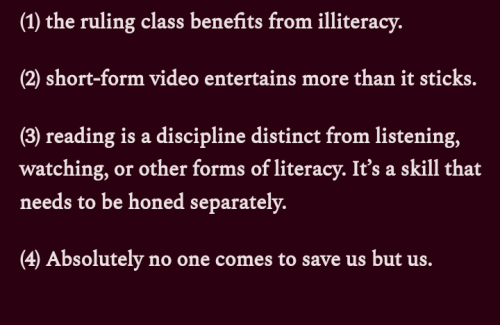
"Absolutely no one comes to save us but us."
Ismatu Gwendolyn, "you've been traumatized into hating reading (and it makes you easier to oppress)", from Threadings, on Substack [ID'd]
Falling in Love!!

Hello, brain people!
Love!! What on earth happens to your brain as you fall in love? There are three stages that we all go through as we fall in love with that special somebody: Lust, Attraction, Attachment
During Lust, sex hormones are released - this being oestrogen and testosterone in women and men respectively.
Throughout Attraction, you feel all wonderful and love-stricken! You can’t think of anything other than that special somebody. There are three main neurotransmitters that are involved in this stage, with each type acting within a specific pathway in the brain. These neurotransmitters are: Adrenaline (Epinephrine), Dopamine, and Serotonin.
Epinephrine is released during your body’s “stress response”, making your blood levels of adrenaline and cortisol increase. This means that even meeting with that somebody can make your heart race, as you also start to sweat. How lovely!
Dopamine is closely related to our brain’s “appetite system”, the system that is active whilst we are craving something. Dopamine stimulates “desire and reward”, and does this by triggering a rush of pleasure! This has a very similar affect to cocaine on the brain! Love is a drug!
Serotonin is an anti-depressant, and may also explain why, when falling in love, your love stays on your mind.

Finally, we have attachment! This is the tight bond that keeps couples together long enough for them to raise children. Yet again, we have chemicals to thank for this! These are: oxytocin and vasopressin.
Oxytocin, the cuddle hormone :), is a very powerful hormone released by men and women during orgasm, and is said to deepen the feelings of attachment between the couple, making them feel much closer to each other. As the theory goes, the more sex that the couple has, the deeper the connection they feel for one another. Sounds good to me! :)
Vasopressin is an anti-diuretic hormone that works with your kidneys to control thirst. Although little is known about the affects of this hormone, when male prairie voles were given a drug that suppresses the effect of vasopressin, the bond with their partner fell apart immediately, as he then would fail to protect his partner.
So go out there! Bump into a complete stranger, tell them about yourself, and fall in love! :)
The misunderstanding of carpe diem + physical harm in dps makes me absolutely crazy
Knox stalks a girl, doesn’t take no for an answer and gets hurt because of it (gets punched by Chet). He deals with physical harm. He ends up getting the girl, but he had a price to pay, a punishment to endure. Chet threatened him, he could have been in danger. Knox didn’t think he did anything wrong. He apologized to Chris, but with the stalking and such, it never went through his head “hey this might be kinda fucked up” while he was doing it.
That’s not what Keating said. He didn’t told them to be careless and act on their impulses even if that might get them in danger.
Charlie pulls his “phone call from god” prank and many things happen. One, when he first published the article he revealed the club (although not its members or activities) without anyone else’s permission. Two, he could have gotten expelled. Three, he got hit by Nolan, a physical punishment. Just like knox, he dealt with physical harm and risked expulsion. Charlie didn’t think he did anything wrong.
Keating himself told him that he flew too close to the sun, than he didn’t mean that in his lessons. Carpe diem is not choking on the bone.
Neil seemed to understand Carpe Diem, he was just desperate. It’s not than he was impulsive, or careless, he was just incredibly desperate, and that’s somehow worse. Neil goes behind his father’s back and joins a play. He writes a letter pretending to be him, sneaks off to rehearsal. When his father finds out, he has a price to pay (his father enrolling him on military school and forcing him to stop acting) and ends up dying by shooting himself (physical harm). Neil definitely knew, and thought about what would happen if his father discovered, but he was so desperate to live, to do something he wanted for once, he didn’t care, he began hoping he would manage to keep it hidden. Neil thought he was in the right (which, honestly, he was). He didn’t see anything wrong in what he did, simply wanted to fulfill his passion, passion than didn’t hurt anyone, passion than didn’t involve anyone else other than himself. The contrast with Charlie/Knox and yet, still having the same consequences… Peter Weir I’m hunting you down.
This is not what Keating encouraged. Remember how Keating asked him to talk to his father? Remember how he asked him if he talked to him (and Neil lied and said yes) and he was very happy and supported his decision about the play? Remember how, before knowing his father “agreed” Keating didn’t tell Neil “oh you’re already in the play, go through with it, carpe diem, who cares what your father says?” but instead told him “talk to your father. If he says yes then you can continue with the play with no worries, and if he says no then wait until you’re out of school and he won’t be able to control you as much anymore. You have options, this is not the end of the world. Either talk to him and come to an agreement or wait.” Remember that? Keating didn’t want Neil to go behind his father’s back, because he knew the consequences this would have.
(Interesting how, out of all the physical harm than the misunderstanding of carpe diem caused, Neil’s is the only one inflicted by himself to his own body. I’m definitely very normal about this.)
Charlie, again. He punched Cameron. Acted on impulse, didn’t think of the consequences punching another student on school grounds, on school hours, actually meant. He got expelled. He suffered a punishment. But now he didn’t receive any physical harm, but rather caused it. To Cameron. He didn’t think he did anything wrong, he thought Cameron deserved it.
Cameron. He’s the hardest to understand. He wants to seize the day, in his own way. After all, he joins the club despite not really having to, but he simply seems too scared to actually carpe that diem. He ends up seeing this as dangerous. After what happened to Neil (dead), and after seeing what happened to Charlie (almost expelled) and Knox (ended up with a bloody face) he gets scared. Damn, this might actually be dangerous. It’s a good reasoning. 3/7 members got hurt. Not half of them, but almost. He misunderstood carpe diem based on the consequences seizing the day had in the others (the others who misunderstood what it actually meant) and so he snitched to nolan. And this is what causes him physical harm, what causes him to be punched by Charlie. He loses something (his friendship with the other poets) and gets physically hurt. So, so, sooo interesting how despite this being considered the complete opposite to seizing the day, it’s framed in the exact same way as all the other instances where carpe diem takes part. He suffers the same consequences as everyone else. He believed himself to be doing the right thing, to be saving the others’ academic lives and doing now what he couldn’t have done for Neil before (protecting others from keating’s influence).
Keating never meant for carpe diem to be dangerous, or hurtful, or scary.
But then Todd.
Todd’s carpe diem is just becoming more confident. Reading his poems aloud, becoming more sociable and comfortable around his friends, accepting than he’s allowed to receive love, to rely on others, to believe in himself, to stand up for himself and his beliefs (refusing to sign the paper and saying no to his parents and nolan).
His final stand, his seize the day moment, is at the end of the film. He’s the first one to stand on the desk. This is the perfect rebellion. Meaningful, happens for a reason (Keating getting unfairly fired), doesn’t harm anyone else and doesn’t harm himself (doesn’t cause him nor anyone else physical pain). No danger (he might get in trouble, but I doubt he could face expulsion for standing on a desk). Charlie’s act on Neil/Keating’s memory was one of anger, impulsive, one that drew blood and ended in expulsion. Todd’s was one of defiance, impulsive, but that hurt no one and ended well. It’s more, it caused happiness (Keating felt better, saw his contributions).
The one who felt more scared to go through with it at first is the only one who truly understood it.
Then with Meeks/Pitts idk honestly. They don’t really have a big moment. I guess at the end, standing on the desks, but they’re not the ones who start it or are particularly important in that scene. The radio scene, perhaps, but I don’t really see what was stopping them from building a radio before. If the radio scene was their carpe diem, though, then another example of someone understanding what it truly meant. The scene ended well, didn’t hurt anyone or involved anyone who was unwilling, they didn’t get any punishment after, etc.
Hey guys, I finally finished my Anderperry fic where Neil goes to military and medical school while Todd becomes a semi-famous poet, and they don’t run into each other until years later!! I fear I was subconsciously writing for this to be the saddest Anderperry fic ever; maybe give it a read and tell me how I did on achieving that :)
Here’s the summary if you’re interested:
“I’ve read your poetry, you know,” Neil admits casually after a few beats of silence, as if he’s discussing the weather and not revealing earth-shattering information, while his eyes remain trained on the football game playing on the TV in the corner of the bar.
Did he know? Could he see right through all of Todd’s poetry, see all of the desperate clinging onto his glory days which were limited to five brief months because of his disappearance? Todd almost wants to lunge at him, wants to throttle this boy-turned-man for getting to know all of the agonies which traced his mind while he was stuck in this dingy bar still not even being able to tell if a smirk or frown was pulling at Neil’s lips.
Of course he doesn’t lunge, – when has Todd lunged for anything in his life? – just struggles to not choke on his spit while he rasps out a simple “yeah?” as if it’s a full question. This will be the death of him, he’s decided.
Or in which it’s 1981, New York Times bestselling poet Todd Anderson has run out of words to say, and he just so happens to run into the only boy who always knew how to speak up for him.
🍄🌻🍂 Outdoorsy Agere 🍂🌻🍄
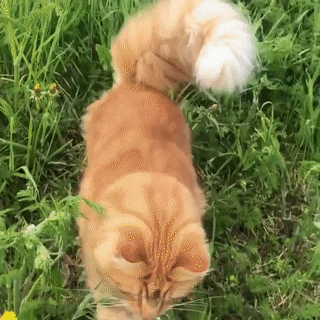
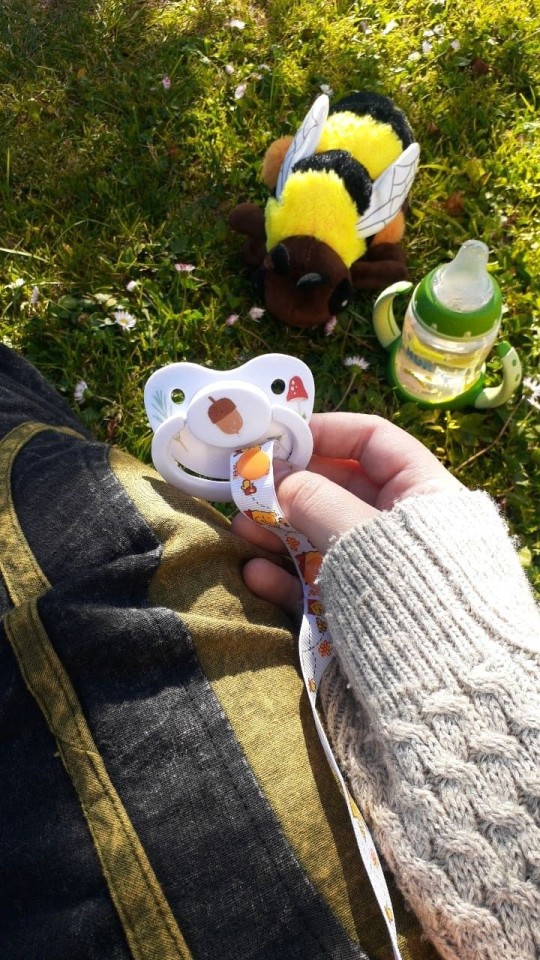

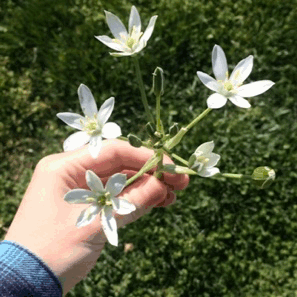
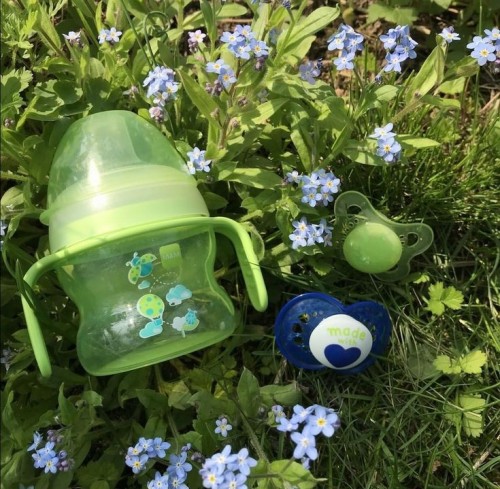

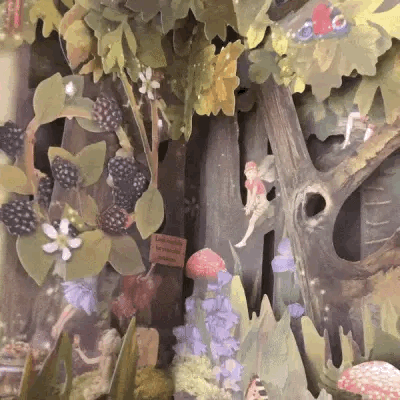
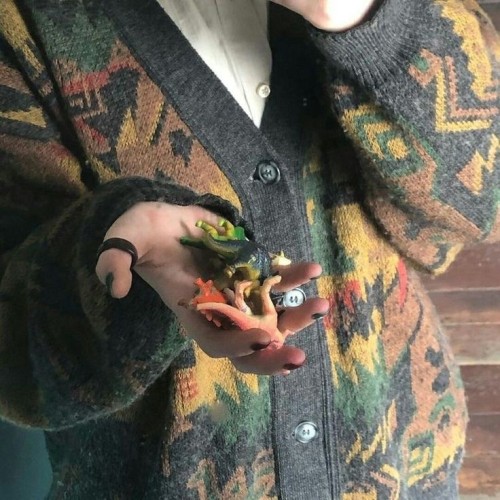
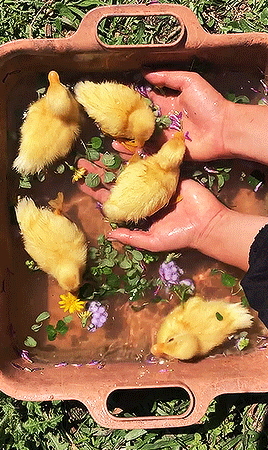
hanya yanagihara “he is so lonely that he sometimes feels it physically, a sodden clump of dirty laundry pressing against his chest. he cannot unlearn the feeling” vs heather christle “i sometimes imagine a metaphysical strainer i could rinse my body through, until i am whole and clean in the sink, and all the despair is held separate and dripping above. i imagine i could toss it away” vs chen chen “i wish i could peel / all my sadness in one long strip off my skin / & toss it in a bucket. no one would have to carry it. / it would just sit there & be punished. / it would just sit there & think about everything it’s done”
Todd needed Neil, but Neil needed freedom over his life.
Ok tumblr friends. I’m trying to spend less time on the internet these days, and I LOVE reading non-fiction books, but trying to find recommendations for new books is a nightmare. Any time I try to look up good new non-fiction books the results are all like “would you like to read an autobiography of Paul Newman or New Reasons We’re All Doomed” and that just. Doesn’t Work for Me. So I’m asking for recs here. I’m open to books about literally any field or topic. Only caveats are that hard sciences have to be on a level I can understand as a humanities person, and medical stuff can’t be too gory (ie I loved Siddhartha Mukherjee’s The Gene and The Song of the Cell, but can’t stomach The Mother of all Maladies). And nothing TOO miserable, but I have a fairly high tolerance for historical stuff. I’m particularly fond of micro-history and books that delve into multiple overlapping topics.
As a sampling, here are some books I’ve read and particularly enjoyed in the last two years:
Prairie Fires: The American Dreams of Laura Ingalls Wilder by Caroline Fraser
The Cooking Gene by Michael Twitty
The Gene: An Intimate History by Siddhartha Mukherjee
Song of the Cell by Siddhartha Mukherjee
On Savage Shores: How Indigenous Americans Discovered Europe by Caroline Pennock
Fifth Sun: A New History of the Aztecs by Camilla Townsend
The Five: The Untold Lives of the Victims of Jack the Ripper by Hallie Rubenhold
The Last Days of the Incas by Kim McQuarrie
The Dream and the Nightmare: The Story of the Syrians who Boarded the Titanic by Leila Salloum Elias
Life on a Young Planet: The First Three Billion Yeats by Andrew Knoll
Salt: A World History by Mark Kurlansky
The Food of a Younger Land by Mark Kurlansky
Mastering the Art of Soviet Cooking by Anya von Bremzen
Jesus and John Wayne by Kristine Kobes du Mez
Kingdom of Characters: The Language Revolution that made China Modern by JIng Tsu
The Last Island: Discovery, Defiance, and the Most Elusive Tribe on Earth by Adam Goodheart
Entangled Life by Merlin Sheldrake
National Dish: Around the World in Search of Food, History, and the Meaning of Home by Anya von Bremzen
The Horse, the Wheel, and Language: How Bronze-Age Riders from the Eurasian Steppes Shaped the Modern World by David W. Anthony
The Wager: A Tale of Shipwreck, Mutiny, and Murder by David Grann
Fire away!
williams giving carlos the freedom to work with the strategy team and suggest ideas makes me really glad. you can tell this is a team that wants to improve and do better. on top of that, we see this teamwork between carlos and alex going on behind the scenes is quite nice, especially knowing that carlos felt even more nervous at the pitwall than in the car. great work from alex :)
-
 three-leafed-clover reblogged this · 1 month ago
three-leafed-clover reblogged this · 1 month ago -
 itsseriouslyridiculous reblogged this · 1 month ago
itsseriouslyridiculous reblogged this · 1 month ago -
 lillipupzilla reblogged this · 1 month ago
lillipupzilla reblogged this · 1 month ago -
 undesd liked this · 1 month ago
undesd liked this · 1 month ago -
 secretpersonsociety reblogged this · 1 month ago
secretpersonsociety reblogged this · 1 month ago -
 chickennuggetlover-with-ranch reblogged this · 1 month ago
chickennuggetlover-with-ranch reblogged this · 1 month ago -
 snorticat reblogged this · 1 month ago
snorticat reblogged this · 1 month ago -
 snorticat liked this · 1 month ago
snorticat liked this · 1 month ago -
 torra-k reblogged this · 1 month ago
torra-k reblogged this · 1 month ago -
 cockroachcoffee reblogged this · 1 month ago
cockroachcoffee reblogged this · 1 month ago -
 gunshotbaby liked this · 1 month ago
gunshotbaby liked this · 1 month ago -
 opiumnoire liked this · 1 month ago
opiumnoire liked this · 1 month ago -
 ucantrelate liked this · 1 month ago
ucantrelate liked this · 1 month ago -
 cyber-martyr reblogged this · 1 month ago
cyber-martyr reblogged this · 1 month ago -
 cyber-martyr liked this · 1 month ago
cyber-martyr liked this · 1 month ago -
 iamaslutforjatp liked this · 1 month ago
iamaslutforjatp liked this · 1 month ago -
 acrimeatteatime liked this · 1 month ago
acrimeatteatime liked this · 1 month ago -
 withatebyhisside liked this · 1 month ago
withatebyhisside liked this · 1 month ago -
 gender-conflicted reblogged this · 1 month ago
gender-conflicted reblogged this · 1 month ago -
 gender-conflicted liked this · 1 month ago
gender-conflicted liked this · 1 month ago -
 startlingmetamorphasis reblogged this · 1 month ago
startlingmetamorphasis reblogged this · 1 month ago -
 jimbobaggins111 reblogged this · 1 month ago
jimbobaggins111 reblogged this · 1 month ago -
 kimmycup reblogged this · 1 month ago
kimmycup reblogged this · 1 month ago -
 oneironism reblogged this · 1 month ago
oneironism reblogged this · 1 month ago -
 disasterkingod liked this · 1 month ago
disasterkingod liked this · 1 month ago -
 cultivatingcalm liked this · 1 month ago
cultivatingcalm liked this · 1 month ago -
 sekhmetson liked this · 1 month ago
sekhmetson liked this · 1 month ago -
 crybaby-loverboy reblogged this · 1 month ago
crybaby-loverboy reblogged this · 1 month ago -
 tagide-virtual reblogged this · 1 month ago
tagide-virtual reblogged this · 1 month ago -
 milkshakemotel liked this · 1 month ago
milkshakemotel liked this · 1 month ago -
 imathers reblogged this · 1 month ago
imathers reblogged this · 1 month ago -
 suzena reblogged this · 1 month ago
suzena reblogged this · 1 month ago -
 thefrenchiestamerican liked this · 1 month ago
thefrenchiestamerican liked this · 1 month ago -
 writer-lythings reblogged this · 1 month ago
writer-lythings reblogged this · 1 month ago -
 daisylecrone liked this · 1 month ago
daisylecrone liked this · 1 month ago -
 thesunsaidithurtstobecome reblogged this · 1 month ago
thesunsaidithurtstobecome reblogged this · 1 month ago -
 acconitumn reblogged this · 1 month ago
acconitumn reblogged this · 1 month ago -
 acconitumn liked this · 1 month ago
acconitumn liked this · 1 month ago -
 omenofastorm reblogged this · 1 month ago
omenofastorm reblogged this · 1 month ago -
 omenofastorm liked this · 1 month ago
omenofastorm liked this · 1 month ago -
 junkseries reblogged this · 1 month ago
junkseries reblogged this · 1 month ago -
 steejie liked this · 1 month ago
steejie liked this · 1 month ago -
 mourezdefaim reblogged this · 1 month ago
mourezdefaim reblogged this · 1 month ago -
 mourezdefaim liked this · 1 month ago
mourezdefaim liked this · 1 month ago -
 stary-night reblogged this · 1 month ago
stary-night reblogged this · 1 month ago -
 stary-night liked this · 1 month ago
stary-night liked this · 1 month ago -
 auto-correct reblogged this · 1 month ago
auto-correct reblogged this · 1 month ago -
 humancorps3 reblogged this · 1 month ago
humancorps3 reblogged this · 1 month ago